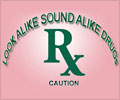
The direct advertising of pharmaceutical products to patients is outlawed in several countries, but spam marketing is all-pervasive and wholly ignores national and international laws. It exists because a sale to even a tiny percentage of the hundreds of millions of people targeted every single day with product offers nets the spammers a profit. Now, Sanjoy Ghose and Vikas Lachhwani of the University of Wisconsin-Milwaukee, have investigated how exposure to spam offering prescription pharmaceuticals motivates individuals to seek additional information on the internet.
Prescription drugs improve health and extend life for many millions of people and it is perhaps natural that patients will seek information about their medication from a variety of sources other than their medical practitioner despite the fact that it is only such a practitioner who can legally prescribe that medication. However, the relationship between patient and pharmaceutical company has changed significantly over the last few decades, and most recently with the advent of the commercial internet and the World Wide Web.
"Over the last few decades, there has been a marked change in the way firms view the patient–drug interface," the team reports. "Patients are now more like 'consumers' and prescription drugs 'consumer products. Marketers now communicate directly with consumers through advertisements where it is legal to do so." There has been much debate over DTCA, direct-to-consumer advertising, but little ongoing discussion of the effect of internet-based communication on consumers. Specifically, there have been very few empirical analyses on the determinants of information seeking over the internet for prescription drugs, the team asserts. They point out that most of the earlier research has focused on consumers' responses in terms of interaction with physicians, and requests for specific drugs after exposure to advertising.
The team's study reveals that exposure to prescription drug spam motivates patients to seek further information over the internet. The reason for this could be the skepticism associated with advertising in general and especially for the case of unregulated spam-based advertising. However, the finding is a double-edged sword as the information seeking might also be associated with attempting to procure prescription medication from sources other than a medical practitioner. The data they report should help move the debate in this area forward and allow policy makers to better determine the impact of medical marketing on patients.
Advertisement










